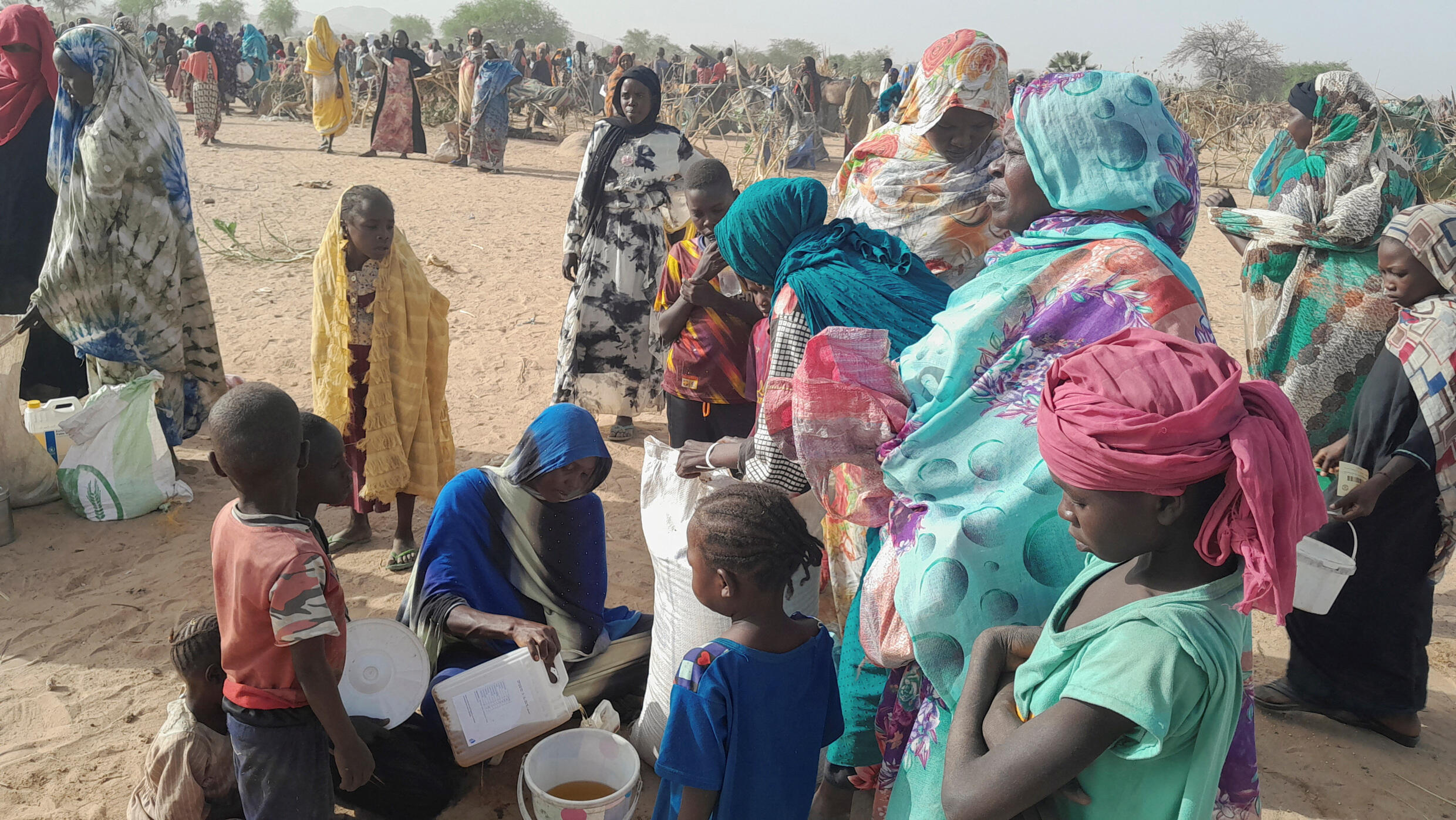The UN ratified this May 2 that Sudan is on the brink of a “humanitarian catastrophe.” More than 100,000 people have crossed into neighboring countries since the conflict began on April 15, but the number of those seeking refuge outside their borders may rise to at least 800,000 in the face of continued fighting. In the last few hours, the Army and the paramilitaries of the Rapid Support Forces (FAR), who are vying for power, announced a seven-day ceasefire, although to date none of the truces has been fully complied with.
Fearful and exhausted after traveling tens of kilometers on buses for days, thousands of Sudanese families arrive in crowded border towns fleeing violence. About three weeks after the conflict broke out in Sudan, the number of both internally displaced persons and refugees is increasing.
330,000 people have been forced to leave their homes and 100,000 of them have crossed into neighboring countries, but the number of those fleeing abroad may rise to at least 800,000, the UN estimates.
Port Sudan, on the Red Sea coast and on the country’s northern borders with Egypt, is a sample of the worrying panorama experienced by the bordering areas, while the Sudanese territory plunges into chaos.
“A good part of the capital has been left empty (…) Everyone on our street fled the war,” says Abdalla al-Fatih, who managed to leave Khartoum after spending the last two weeks trapped in the Kafouri neighborhood, one of the most affected by the bloody fighting that broke out on April 15.

Yusuf Abdel-Rahman, a Sudanese university student, says he arrived in Egypt with his family over the Ashkit Pass on Monday, May 1, after spending the night in the southern city of Aswan before taking a train to Cairo.
“There is a chaotic situation (in Arqin)… Women, children and sick people are stranded in the desert without food, without water,” he describes.
The conflict risks becoming a major disaster as the impoverished nations with which Sudan shares borders face a refugee crisis.
The Egyptian border city of Wasi Halfa has also become one of the land routes used by different governments for the evacuation of its citizens, since the fighting has also taken place around the Khartoum International Airport.
“The situation is very difficult, there is a lot of bureaucracy (to enter Egypt). Our suffering is unprecedented. But we can bear anything: the sound of gunshots, the heat of the truck full of people,” said Aisha Ibrahim Dawood, who She and her relatives traveled five days from Khartoum to the northern city of Wadi Halfa in a rented car.

But many Sudanese citizens cannot afford to travel to neighboring territories and are trapped in their homes in the crossfire. The violence hinders the delivery of humanitarian aid in Sudan, where two-thirds of its population already depended on external assistance to survive, the United Nations highlights.
The UN World Food Program (WFP) said on May 1 that it is resuming work only in the safest parts of the country, work it had suspended after five aid workers died in the course of hostilities.
“It will be a regional crisis”
More than 40,000 people have crossed into Egypt alone in the past two weeks, but they make it after days of waiting in blistering heat and paying hundreds of dollars to make the 1,000-kilometre journey north from Khartoum.
“The risk is that this is not just a crisis in Sudan, it will be a regional crisis,” warned Michael Dunford, WFP’s director for East Africa.
Other families are fleeing to countries like Chad and South Sudan and eventually more individuals may try to escape, including refugees living temporarily in Sudan, the United Nations warns.
“Unless we stop the fighting, unless we stop now, the impact on a humanitarian scale will be massive,” Dunford added.
The Army and the FAR announce a truce of seven days
General Abdel Fattah al-Burhan, who leads the Sudanese Army, and General Mohamed Hamdan Dagalo have indicated in the last few hours that they have agreed to a seven-day truce that will take effect as of next Thursday, May 4.
This was stated in a statement issued by the Foreign Ministry of neighboring South Sudan, one of the countries that has offered to mediate in the conflict and serve as the venue for eventual peace talks between the opposing parties.
However, the scope of this announcement is not clear, since none of the truces agreed so far between the two sides has been fully complied with.
In fact, this Tuesday the shots and explosions resounded in the capital and other towns despite the prior 72-hour ceasefire agreement.

Since the morning of this May 2, clouds of black smoke from the air strikes have been observed in Khartoum, at the confluence of the White Nile and Blue Nile rivers, and in the neighboring city of Bahri; while clashes broke out in Omdurman, in the west.
The two sides accuse each other of violating the truces. This Tuesday, the FAR accused the military institution of carrying out air strikes in residential areas of Khartoum and the Army accused rival forces of using civilians as “human shields.”
Despite the promises, the country has experienced only intermittent lulls in attacks, during which military and diplomatic delegations from different countries in Europe, Asia, Africa and the Middle East have stepped up their operations to evacuate foreign nationals.
In an attempt to reach a negotiated solution to the conflict, the Egyptian president, Abdel-Fattah al-Sisi, assured that his government would provide support for the dialogue between the rival military factions, but also declared that he remains cautious “not to interfere in their internal affairs”.
After months of accumulated tensions, violence broke out on April 15 between the country’s Army and the Rapid Support Forces (FAR) paramilitaries, two factions that until recently co-led the nation, but are now openly vying for power.
With Reuters and AP







![[Img #74683]](https://thelatestnews.world/wp-content/uploads/2024/12/The-main-mistakes-to-avoid-when-betting-on-electronic-sports-150x150.jpg)



